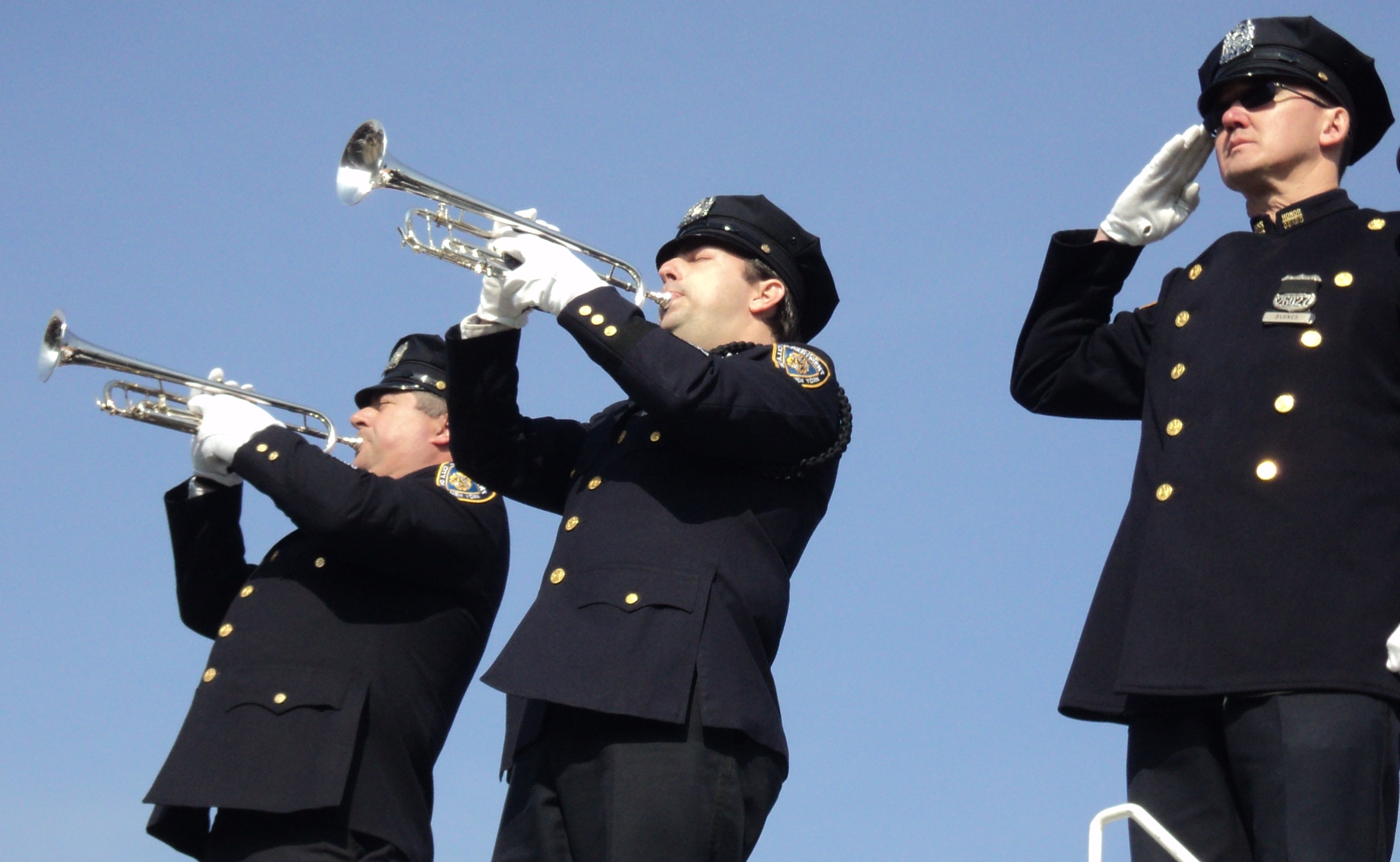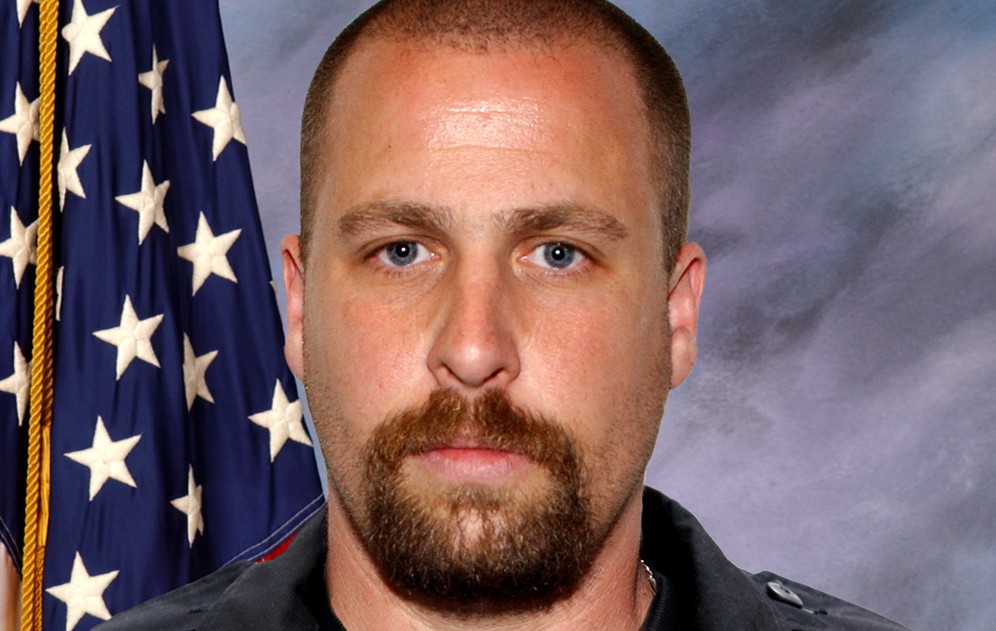

The Future: A computer-generated rendering of one of Nassau's new policing centers, which under County Executive Ed Mangano’s police precinct plan, will replace four of Nassau's eight current stationhouses and serve as community centers. (Nassau County)
Mangano insists that every sector car will remain at their location. In defending the elimination of what his plan describes as mostly “administrative” personnel, his proposal concludes that the number of cops on the street will remain unchanged.
“The entire plan is administrative reduction, no police reduction,” Mangano stresses.
Learned disagrees.
“The biggest misnomer that they are perpetrating is this idea of administrative personnel, and in the public’s mind you think of administration as someone who just sits behind a desk pushing paper as opposed to patrol people,” he says. “We call a whole bunch of other people administrators, but they are not people who sit behind the desk and push paper.”
One example, says Learned, is the role detective lieutenants and detective sergeants play within the current eight detective teams located throughout Nassau’s precincts.
“[Mangano] is referring to them as administrators,” he says. “But they leave the building and go out with their detectives. So in addition to supervising the caseload of detectives, and being sure they are following up on their cases properly, when something happens, like a robbery, and the detective squad responds, they go out with them.”
Nassau Detectives’ Association President Glenn Ciccone says the new plan, practically, is totally unworkable, explaining that a precinct like the First is overwhelmed on Saturday nights with arrests, including busts of gang members.
“There is not even enough room there to handle what they have now,” he says. “Some nights there are 18 subjects in there, and then you have witnesses. You are trying to separate people.”
Mangano’s plan includes moving some special squads, taking out double kitchens and having a backup arrest processing center at headquarters in order to give the open precincts more space.
According to records obtained by the Press from the police union, the Seventh Precinct processed 1,150 arrests last year. Despite the Seventh reaching its capacity, according to Ciccone, the new plan would add the First Precinct’s arrests, which totaled 2,014 last year.
“It is just insane,” he says. “It can’t work. The Seventh has tiny little holding cells, two little rooms. They can’t handle that kind of volume and there is no parking.”
Longer travel time, with officers being out of service for longer times, is also a gripe of critics. The Seventh Precinct, for example, is in Seaford, but under the new plan it will cover an area from the Suffolk County border through Lynbrook and Rockville Centre, according to Ciccone. Besides having to travel to the crime scene, there is the interviewing of witnesses that must be conducted—somewhere. In addition, many in the First Precinct use public transportation, and if a witness is called into the station house, they may not want—or have the means—to travel further to the location of the new precinct.
Police union statistics state that of the 1,248 people in the First Precinct who walked in with complaints last year, 510 were referred to the detective division; in the Fifth, out of 1,920, 405; in the Sixth, 263 from 660 were referred; and in the Eighth, out of 950, 260. Under the new plan, due to these precinct closures, that would result in 1,438 people who would have to travel further to the open precincts to make their complaints, something Ciccone feels would not only inconvenience them, but, because of financial or logistical reasons, might result in their not making the complaint.
In addition to taking the 9,517 complaints from walk-ins, and referring a total of 3,058 cases to the detectives last year, those soon-to-be “consolidated” precinct houses processed 14,402 arrests, fingerprinted 4,577 people, impounded or repossessed 5,224 vehicles, took 33,672 accident reports, and had 1,204 people surrender themselves, the statistics show.
According to Mangano, a supervisor can send a detective to the community policing centers to take reports.
For some residents, however, no matter what Mangano says, the plan still stinks.
“I’d like to know where I go to get my gun permit,” the Franklin Square resident, Karen Martin, told lawmakers, to loud applause, at the end of her three-minute allotment to address the public safety committee at the Feb. 13 hearing. “I’ll make sure that I’m safe and my children are safe. I’m not going to sit around and wait to see if your plan works. We will be policing our own house, our own neighborhoods.”






